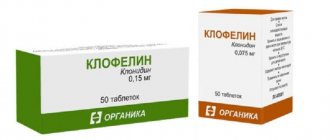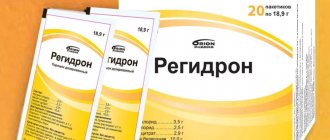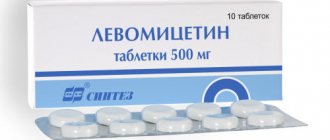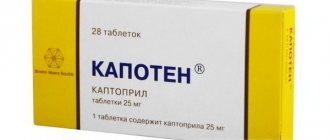Glycine - what is it for, what are its indications and contraindications - information on these topics is sought by people who want to solve some health problems with the help of this popular over-the-counter pharmacological drug today.
According to instructions
The instructions recommend taking Glycine twice a day. This means that the action of the active substance lasts for about 12 hours. In some cases, doctors increase the daily dose of medication in order to achieve better results. The medicine is used sublingually.
If the child cannot dissolve the drug, then it is permissible to dissolve the tablet in a spoon of clean water. It is assumed that the therapeutic effect will be achieved within the first minutes after administration. However, the immediate result is not always noticeable to the patient.
An adult can feel the effect of the tablets in 5-10 minutes. The time it takes to convince yourself of the effectiveness of the treatment is 4-5 hours .
This means that after such a period the maximum effect of the drug will be observed. It can be both calming and stimulating to the nervous system. It all depends on the initial condition of the patient.
Storage rules and conditions of release from pharmacies
To purchase Glycine tablets you do not need a doctor's prescription.
The medicine should be stored in a dry and dark place. Permissible storage temperature is not higher than +25°C.
Browser does not support HTML5 Video
CHILDREN WITH DELAYED DEVELOPMENT CAN BE IRRITATING AND CAUSE AGGRESSION...
What if it's your child? Help him! Information on the website pro-mozg.com
Find out more… SlickJump®
The drug can be used for 3 years from the date of release indicated on the packaging.
Misuse
Glycine begins to act immediately, but only if used correctly. For complete absorption into the oral mucosa, the tablet must be kept under the tongue until dissolved. If you take the medication deviating from the instructions, it may be ineffective.
Often patients do not read the instructions and start taking the medicine. Having swallowed the medication whole, the patient becomes aware of the ineffectiveness of the therapy. Under the influence of gastric juice, the active substance stops working. In this situation, we can say that Glycine will never work. You may not expect a positive result. But even with this treatment, patients begin to see the therapeutic effect of the drug.
Placebo
Reviews from many patients say that Glycine acts within seconds of application. In fact, this belief is self-hypnosis. According to many people, Glycine is just a dummy. It does not bring any benefit to the human body. In the same way, a pharmacy product cannot harm.
There is an assumption that doctors are accustomed to prescribing pills to those patients who have convinced themselves of the disease. After taking a course of aminoacetic acid, people recovered completely through self-hypnosis.
Even after laboratory tests, it is impossible to say exactly how quickly Glycine acts. This is because this substance is normally present in the human body and is constantly synthesized by the body. Consequently, it will not be possible to determine the rate of removal of tablets from the blood, because aminoacetic acid will always be determined in the biomaterial.
Found a mistake? Select it and press Ctrl + Enter
Glycine or aminoacetic acid is quite widely used in medicine as a nootropic agent.
Instructions for the use of glycine depend on the situation that caused the disruption of the central nervous system. And there are a lot of such things in the life of a modern person:
- Frequent stress;
- Insomnia;
- Memory problems;
- Chronic fatigue;
- Mental stress;
- Consequences of brain injuries;
- Constant mood swings (emotional instability).
The drug has a positive effect on brain metabolism. The role of this amino acid is very important in everyone’s life, providing normal sleep, psycho-emotional background, stabilizing sleep, and activating mental activity.
Important! The substance is prescribed in different situations, so the dosage and method of administration will differ depending on the pathology and age of the patient. Before using this medicine, you should consult your doctor to learn about possible contraindications and side effects.
Indications for use
Let's look at this aspect in more detail. The scope of the drug is quite wide. Doctors prescribe it to people who have the following problems:
- sleep disorder;
- stroke;
- myocardial circulatory disorders;
- acute “withdrawal” in the treatment of alcohol dependence;
- systematic stress;
- emotional instability;
- mental stress;
- alcohol poisoning;
- intellectual-mnestic disorders;
- behavioral changes in children and adolescents;
- chronic alcoholism;
- disruption and damage to organic elements of the central nervous system.
In most cases, the drug is used to combat stress, decreased physical activity and mental abilities, and insomnia. After taking Glycine, the effect comes very quickly.
How to take glycine correctly
Considering the modern pace of life, it is very difficult to keep your nerves in order, because in everyday life many are faced with constant stress and anxiety. This often leads to insomnia, nervous breakdowns and chronic fatigue.
Most often, in such situations, doctors recommend using glycine as one of the best nootropic drugs that have a positive effect on brain function.
Some people ignore visits to doctors and buy the drug based on the advice of friends, so questions often arise about how to take pills correctly in certain situations, and whether they should be dissolved or swallowed.
Let us remind you that aminoacetic acid helps improve memory, relieves mental stress, regulates metabolic processes in the brain, so before taking pills, you need to clearly know why you are taking them and what effect you should expect from taking them.
Why should glycine be placed under the tongue?
The instructions for use clearly state that the drug is taken sublingually, because in this way the amino acid is absorbed much faster and begins to have an effect on the body.
This is explained by the fact that under the tongue the blood supply is much better due to the proximity of the vessels. With this intake, the main substance of the tablets is not destroyed by enzymes and very quickly enters the bloodstream. The effect of the drug occurs within 20 minutes - a slight sedative effect is felt.
In some situations, given the patient’s inability to take glycine sublingually, the tablet is dissolved behind the cheek, that is, subbucally. In this case, the effectiveness of the drug decreases, since under the influence of salivary enzymes, most of the amino acid is destroyed and enters the body in a much lower concentration.
Other methods of administration
Also, there are situations when the drug is taken buccally, that is, the tablet is ground into powder and applied to the gum or the inside of the cheek. This administration of the drug allows the active substance to be absorbed into the body most quickly and is practiced in cases of medical emergency, namely in the following cases :
- Severe disorders of the nervous system due to alcohol intoxication;
- Stroke;
- Suffered shock or stress;
- Traumatic brain injury;
- Atherosclerosis;
- Tachycardia;
- Attacks of hypertension;
- Neurotic conditions caused by other diseases.
Should I take glycine? Some patients, due to ignorance of the instructions, take the drug like regular tablets, washing them down with water. This is fundamentally incorrect, since when it enters the stomach, most of the active substance of the drug is destroyed under the influence of gastric juice.
The effectiveness of this use of the substance is minimal, so you should follow the instructions and take the drug sublingually. The exception is infants, who are recommended to give the drug with water.
Contraindications
Considering that officially the only possible contraindication for use is individual intolerance to this medicine, cases of glycine overdose and poisoning are very frequent.
Even if all dosage instructions in the instructions were followed, the human brain has not been fully studied, and it is simply impossible to predict how the body will react to the direct effect of a chemical on neutrocytes.
What may benefit ten people can cause significant harm to the eleventh. According to statistics, this happens in a ratio of 100:1, and, as a rule, with prolonged unauthorized use or dosage violations. All negative aspects go away on their own, within a couple of weeks after stopping the medication.
However, no matter what experts say, no matter how floridly this issue is described in the medical and pharmaceutical literature, one thing is clear - overdose and poisoning are possible, which means you need to be able to recognize this condition in time and provide assistance to the victim.
Rules for taking glycine: before meals or after meals
Glycine is a drug that has a fairly wide spectrum of action. It is prescribed not only to adults, but also to children, as an auxiliary substance in the treatment of various pathologies . Despite the great popularity of tablets, some still ask questions about when is the best time to take the drug and how the timing of use affects its effectiveness.
When to take glycine, before or after meals, depends on the purpose for which you drink it:
- If the drug is taken to normalize sleep, then naturally you need to drink it before going to bed, that is, a few hours after eating;
- School-age children are often given glycine in the morning on an empty stomach in order to activate brain metabolic processes and improve concentration;
- In cases of ischemic stroke, in the first hours after the pathology, the drug is actively taken, while the patient has absolutely no time to eat.
And yet, how to take the drug, before or after meals? In fact, the time of taking the drug has nothing to do with food intake. The main rule is not to take the product with food, as digestive enzymes destroy the main substance of the tablets.
Some believe that taking the drug is contraindicated for people with ulcers or gastritis, since aminoacetic acid can negatively affect the functioning of the pancreas. However, this judgment is not correct. Glycine is not a substance that has a detrimental effect on the stomach; on the contrary, many doctors prescribe it in cases of increased acidity of gastric juice.
In a number of situations, taking into account the individual characteristics of each patient, doctors themselves prescribe the time for taking the drug.
Overdose
So what do you need to know about this? To achieve a good therapeutic effect, “Glycine” must be taken in accordance with all the instructions of a qualified doctor. If you exceed the dose, there is a high risk of overdose.
You can recognize it by the presence of the following symptoms:
- increased fatigue;
- indifference to everything around;
- decreased physical and mental performance;
- violation of spatial orientation;
- decreased concentration;
- dizziness;
- rashes on the skin;
- itching;
- anaphylactic shock;
- nausea and vomiting;
- stomach upset;
- cough;
- impaired kidney function;
- Lactacidemia.
In case of overdose, it is necessary to do an urgent gastric lavage, and then call an ambulance. It is prohibited to give any medications on your own, as this can only worsen the situation.
Glycine: correct dosage
The role of the substance is difficult to overestimate, because this amino acid is involved in all biochemical processes and has a positive effect on the central nervous system.
The human body produces glycine on its own. Also, this amino acid is present in food products (E 640 in the food industry). If it is in excess, a person begins to experience absent-mindedness, insomnia and aggression.
Increasing the concentration of this substance does not have a very good effect on the functioning of the body. This entails low blood pressure, rapid heartbeat and allergic reactions in the form of redness on the skin.
The daily norm of glycine depends on age, individual characteristics of a person, as well as behavioral pathologies, for example, hyperactivity in children. Some are interested: how many tablets of the substance can you take per day? The most common method of administration (at a dosage of 100 mg):
- For adults. Three times a day, 1-2 tablets;
- For teenagers. Three times a day, one tablet;
- Children under 7 years old. ½ tablet up to three times daily.
Before giving the drug to children, be sure to consult a doctor and under no circumstances self-medicate.
Course duration
How long to take glycine without interruption:
- For adults. Use of the drug can last from two weeks to several months;
- Adolescents should be given the drug for no more than thirty days;
- Children under 7 years of age can be given the drug for no longer than two weeks.
There are situations when several tablets of a substance are taken at a time, these include:
- Alcohol intoxication;
- Severe stressful situations;
- Stroke;
- Other situations that have been previously agreed upon with the attending physician.
How often can you drink glycine and can you drink it constantly? Of course, you should not drink this remedy for years. At a minimum, the severity of the effect will weaken significantly, at a maximum, an allergic reaction may occur.
Basically, the duration of treatment depends on the diagnosis. For example, to improve mental performance, it is enough to drink the drug for about 4 weeks, then take a break for the same period. And to prevent ischemic stroke, you can drink glycine 3-4 times a year with breaks of at least a month. In any case, you should visit a doctor before your appointment.
Also, you need to take into account the fact that despite its harmlessness, the maximum daily dose of the drug is from 300 to 600 mg, which should not be exceeded in the hope of obtaining a better result. An overdose of the drug can lead to hives, drowsiness or stomach problems.
How many times a day to take the drug, taking into account the period of pregnancy and breastfeeding, depends on the individual characteristics of each woman. For some, it helps relieve nervous tension and anxiety during pregnancy. Also, glycine will help fight drowsiness and possible irritability during the postpartum period. The method of use of the drug must be discussed with the doctor.
What to do in case of poisoning
If the symptoms are sluggish and weak in nature, then it is enough to just stop taking the pills. After this, the signs of poisoning should disappear on their own within two weeks. If an overdose occurs acutely, then before taking any measures, it is very important to understand exactly when the drug was taken and entered the bloodstream. After this, you need to provoke an emetic effect by any possible means. The best option is to force the victim to drink a liter of ordinary warm water and, putting his fingers in his mouth, press on the root of the tongue.
If an overdose occurs after long-term use of the drug, then you need to take activated carbon at the rate of 1 tablet per 10 kilograms of weight. As soon as the condition improves, you should immediately go to the hospital to receive qualified medical care. If the condition is very serious, you should immediately call an ambulance. Any delay is fraught with very serious consequences.
If side effects manifest themselves in the form of an allergic reaction, then you need to take antihistamines. The best are Diphenhydramine, Suprastin, Peritol and Fenkarol. These drugs belong to the fourth generation, so they quickly eliminate the clinical manifestations of allergies. When a digestive system disorder develops, symptomatic treatment is usually required. In very rare cases, hospitalization may be necessary. However, this is extremely rare in medical practice and is an exception, not a pattern.
How does glycine work?
As mentioned above, the amino acid plays an important role in the functioning of the central nervous system, has a calming and nootropic effect, and improves brain metabolism. Despite the fact that this drug is very often used in modern medicine, not everyone knows how glycine affects the body and what the benefits of its use are.
Action of the substance
The composition of Glycine tablets includes aminoacetic acid itself, which is the main active ingredient. It has the following effect on the body:
- Helps improve cerebral circulation;
- Participates in the synthesis of various compounds and promotes their better absorption (for example, magnesium, zinc);
- Allows you to reduce the production of “stimulating” amino acids;
- Neutralizes the toxicity of certain substances and drugs;
- Blocks the production of adrenaline.
- Restoring healthy and sound sleep;
- Improving memory, increasing brain activity and improving concentration;
- Reducing psycho-emotional stress in stressful situations;
- Increasing the level of performance;
- Faster recovery after traumatic brain injury;
- Reducing irritability, aggressiveness and anxiety.
How long does it take for glycine to take effect?
Tablets of the substance are used in completely different branches of medicine, so when this drug begins to work, it is impossible to answer unambiguously. Each situation must be considered individually:
- When using glycine to improve memory, it is impossible to get results instantly, as in principle with any medicine. Using the drug on a regular basis will allow you to notice positive changes in terms of mental activity over the next week.
- If you drink the substance to normalize sleep, the effect of the drug is about half an hour. The product slows down the pulse, slightly calms you down and allows you to fall into a normal, healthy sleep. However, it is worth remembering that everything is individual.
- How quickly a substance acts during stress and psycho-emotional imbalance also depends on the characteristics of the individual person. Some consumers claim that its effect begins within 5-10 minutes and has a calming effect.
From a medical point of view, the drug does have a sedative effect, but not instantly, but some time after administration. Also, it is worth understanding that there are very serious mental illnesses that the substance cannot cope with.
Duration of action of the drug
If you ask the question “how long does glycine last” and carefully study the instructions for use, which indicate taking the substance twice a day, you can conclude that glycine is effective for 12 hours . However, this is also all individual. Do not forget that the effect of the drug depends directly on the patient’s initial condition, so the substance calms some people, and on the contrary, invigorates others.
Some people claim that the drug begins to act from the first seconds of use, while possessing almost fantastic properties. Although in fact, this is just self-hypnosis. Also, there is a category of people who are inclined to think that the substance only causes harm and side effects, which, from a medical point of view, have not been identified (https://irecommend.ru/content/metabolicheskoe-sredstvo-biotiki-glitsin). You can find out in detail the opinions of consumers about taking the drug from the article “The reviews are telling the truth - it’s not for nothing that they say good things about glycine!”
Despite the fact that the substance has been used in medicine for many years to treat and prevent many diseases, some are only now beginning to appreciate the benefits of this drug. The use of glycine will not only ensure excellent memory and normal sleep, but will also help prevent the development of more serious pathologies.
Author: Irina Krasnoselskaya
All materials on the Priroda-Znaet.ru website are presented for informational purposes only. Before using any product, consultation with a doctor is MANDATORY!
Olga Koroleva
Published: 27-07-2018
Updated: 08-11-2019
Olga is responsible for the selection of authors and the quality of published materials on our website.
Today, glycine is considered one of the most common (and inexpensive) nootropics, and opinions about this substance vary from jokes about its uselessness to the mandatory inclusion of glycine in the daily diet. Let's use science to understand what evidence there is about the benefits (and uselessness) of glycine.
Glycine is an amino acid, one of the existing 20 amino acids into which all proteins that enter our body are broken down. As you know from your school biology course, proteins are involved in almost all vital processes, starting from the construction of any cells in our body. That is, from amino acids our body synthesizes the proteins it already needs, and therefore the presence of all the amino acid building blocks is important.
Glycine is a nonessential amino acid, which means that in addition to obtaining it from food (with a balanced diet, a person receives about 2 g of glycine per day), the body is able to independently produce small amounts of glycine from other sources, if necessary.
Moreover, the amino acid glycine is also available in tablet form. Manufacturers claim the following beneficial properties of pharmaceutical glycine: memory improvement, nootropic effect, sedative and antidepressant effects, improvement of condition after ischemic stroke, normalization of sleep. We suggest you find out what information is available about the compliance of this additive with its declared properties.
The calming effect of glycine is associated with its participation in the inhibition of motor neuron activity. The fact is that the muscles of the body are controlled by electrical impulses coming from the brain to the nerve endings through motor neurons. The latter perform the functions of mediators and have their own “return inhibition” system, which protects them from dangerous overexcitation.
Most motor neurons are located in the spinal cord. Each such neuron has a process (axon) that extends to the corresponding muscle. Each axon has a small branch - a collateral - that connects to Renshaw cells. When a motor neuron is overexcited, Renshaw cells use glycine to inhibit electrical impulses, protecting the muscular system from overexertion and cramps.
Analogs
Recently, glycine analogues have appeared on the market of medicines and dietary supplements. Preparations are produced containing glycine with the addition of vitamin B6, vitamin B12 and minerals.
Such drugs act as sedatives for stress, depression, the substances included in the composition treat sleep disorders.
Under stress
1. CALM CP (60 capsules) from the manufacturer NeuroScience - a natural drug that helps overcome anxiety and nervousness.
Includes:
- banana extract,
- enriched soy lecithin,
- glycine,
- taurine,
- and excipients - microcrystalline cellulose, magnesium stearate, silicon dioxide.
Banaba extract and lecithin regulate the production of cortisol (the “death” hormone that breaks down proteins), while glycine and taurine soothe. It is recommended to take 1 capsule before bedtime, after consulting with your doctor. People who take this drug say that it is more effective to take it in the morning because it can be difficult to fall asleep after taking it in the evening.
2. GABA CALM (120 sublingual tablets) from Source Naturals - an effective drug for stress and increased nervousness.
Includes:
- GABA (gamma-aminobutyric acid, involved in brain metabolism),
- glycine,
- taurine,
- N-acetyl L-tyrosine (an amino acid involved in protein synthesis, blocking the formation of adrenaline and norepinephrine).
The drug acts on nerve cells, inhibits the sending of electrical impulses, which helps reduce nervous tension. You can use it at any convenient time, sublingually or buccally, but not more than 3 capsules per day.
For depression
3. TravaCor (120 capsules) from NeuroScience - a drug that effectively fights depression and improves mood.
Includes:
- amino acids (theanine, taurine);
- vitamin C, as well as B6 and B12;
- minerals: magnesium, zinc, selenium.
Active substances fight anxiety, increase performance, improve mood, and prevent the formation of adrenaline, which has a destructive effect. You can take 1-3 capsules three times a day, it is recommended to start with a small portion.
4. Extress, (60 capsules), from Vaxa International - a homeopathic remedy that has a gentle effect on the nervous system. The components of the drug actively fight anxiety, disorders and depression, and improve mood.
For sleep disorders5. Melatonin Complex, (100 tablets) from Source Naturals is an effective sleep aid, which includes:
- melatonin (a hormone that regulates daily routines),
- glycine,
- taurine,
- vitamin B6.
Take one tablet before bed; some people recommend half the dose.
6. Happy Sleeper (60 capsules) from Natural Balance - an effective sleeping pill that helps regulate the internal clock and establish sound sleep without waking up at night. The composition of the drug includes:
- melatonin,
- glycine,
- GABA,
- valerian root extract,
- lemon balm and English lavender extract.
Take two capsules before bed, after consulting with a specialist.
Glycine Bio - produced in packages of 10 and 50 tablets of 100 mg. Side effects, contraindications and indications for use are similar to regular glycine.
Glycine Forte from Evalar is a biological complex of active additives. It differs from regular glycine in the increased dosage of amino acids, as well as the presence of vitamins B1, B6 and B12. Produced in blue and purple packages of 20 and 60 tablets with a dosage of 300–500 mg.
Glycine Canon - in addition to glycine, it contains many excipients, such as: aspartame, roscarmellozole sodium, magnesium stearate, copovidone and sorbitol. The manufacturer is packaged in 10 and 30 tablets, which is perfect for people who require short-term effective therapy. Does not apply to medicines.
Glycine from VIS is also an active biological additive; it contains glycine and vitamins B1, B6, B12. A huge advantage is that the tablets are available in the form of gelatin capsules, which is convenient for patients who cannot take regular tablets.
Glycised is an analogue with a mild sedative effect.
Cerebrolysin is a protein that is produced from the nervous tissue of animals. Is a nootropic.
Elfunate is a strong antioxidant, is in great demand and is very effective.
Scientific experiments with glycine: memory improvements - controversial research findings
But the question here is this: if the body still receives glycine itself from regular food (and supplements it where it needs it), then is there a research-proven effect of additional dosages of glycine?
When scientists tried to test glycine for the treatment of schizophrenia - back in 1999, at least some minimal effect was achieved only with a dosage of 0.8 g per kg of human weight per day (study). That is, a 70-kilogram person would need to eat 56 grams of glycine per day.
At the same potent dosage (0.8 g per kg of a person's body weight per day), scientists tested the effects of glycine on memory and alertness in 2007 (study). The study was placebo-controlled and was carried out on 13 young healthy people: at the end of the study, various tests of memory and attention did not reveal a difference between glycine and placebo. Some scientists argue that glycine penetrates the blood-brain barrier extremely poorly, so only a small amount of this amino acid reaches the brain, which cannot significantly affect cognitive functions and memory.
Recommended and maximum dosages of glycine
By the way, the recommended maximum dose of glycine is 10 times less than that used in the studies described above - no more than 5.6 g per day, as recommended by the Federal Service for Surveillance on Consumer Rights Protection and Human Welfare.
And the pharmacy instructions for the drug suggest drinking glycine in a dosage of 2-3 tablets of 100 mg per day - this is about 200 times less than they drank in a failed study to improve memory.
Glycine is a very cheap drug and almost anyone can produce it. On Yandex.Market, the price for glycine starts at 25 rubles per package.
Antidepressant effect of glycine: effectiveness in adaptation disorder
Adjustment disorder is an emotional disorder that occurs as a result of stress and negative life changes. Accompanied by anxiety, depression, inability to adequately respond to the environment, and decreased social activity of the patient. The reasons may be: conflicts in the family, loss of loved ones, moving, military service, unemployment, dismissal from work and others.
In 2012, the journal Practical Medicine published a detailed scientific article on the effectiveness of glycine in the treatment of adaptation disorder. During the study, glycine was given to 64 participants (some of whom were in the placebo group) at the recommended dosage of 300 mg per day. The results were more than convincing: according to the Hamilton Anxiety Rating Scale, 82.4% of patients felt a significant improvement in their emotional state and a decrease in anxiety.
Here is how the condition of the subjects improved on the graph:
The blue line is the improvement in the condition of those taking glycine (according to the Hamilton Anxiety Rating Scale), the pink line is the change in the placebo group (the subjects did not know whether they were taking placebo or real glycine).
In addition, glycine helps to cope not only with emotional instability, but also with severe mental disorders. In a recent double-placebo-controlled study from 2020, a group of patients with schizophrenia were given glycine in addition to the main medications. After a 6-week experiment, scientists found that taking glycine significantly improved the clinical response to treatment.
Glycine: Scientific Evidence on the Risk of Stroke with Glycine
Previously, doctors recommended taking glycine in a dosage of 1-2 g after an ischemic stroke. It was believed that this helps improve the functioning of the brain and nervous system, and also protects blood vessels.
But a 2020 study by Japanese scientists found that this amino acid may increase the risk of death in some older people. The Japanese examined the medical histories of 29,079 residents of Takayama City since 1992, among whom there were 677 deaths from stroke. After analyzing the statistics, the Japanese concluded that taking glycine was associated with an increased risk of death from stroke. Which, however, does not prove a direct connection between glycine intake and stroke. However, it is also impossible to talk about the benefits of glycine for patients who have suffered a stroke. In any case, people with diseases of the cardiovascular system should consult their doctor about the admissibility of taking such supplements.
Glycine and improved sleep quality: a study
A study conducted by a group of scientists from Japan in 2007 concluded that taking glycine before bed is effective. The experiment involved volunteers who had problems falling asleep and deep sleep. Participants were asked to take 3 g of glycine before bed (the usual dosage of glycine from a pharmacy is 30 tablets), and then talk about their subjective feelings.
During the experiment, almost all volunteers felt an improvement in the quality of their sleep and noted the disappearance of problems falling asleep. In addition, a decrease in daytime sleepiness, improvement in concentration and memory was recorded. The researchers measured sleep quality using an electroencephalogram and visual observation according to the criteria of Rechtschaffen and Kales. Sleep quality was also measured using the SMH Sleep Questionnaire. The results showed the high effectiveness of glycine in comparison with sleeping pills.
Subjective sleep quality results among the placebo (white bar) and glycine (black bar) groups.
Other research results. Answers to the questions: “How difficult is it for you to fall asleep?”, “How long does it take you to fall asleep?” and on the third graph: the level of sleep efficiency (the share of sleep from the total time spent in bed).
However, despite the fact that the study was placebo-controlled, it had a fairly small number of participants - only 11 people.
Symptoms
An overdose of glycine occurs if a person takes more than 15-20 tablets at the same time.
READ Magnesium overdose
The patient should know what will happen in case of amino acid poisoning. In this case, the following symptoms occur:
- cluster headaches;
- nausea;
- problems with swallowing;
- dry mouth;
- fatigue, lethargy, passivity;
- decreased blood pressure;
- loss of consciousness;
- panic, fear of death;
- allergic reactions - itching, redness of the skin, sneezing, lacrimation, bronchospasm.
A common manifestation of overdose is functional diarrhea. At the same time, the feces become liquid, foamy, and the smell changes. The victim complains of pain in the lower abdomen.
This phenomenon is often observed in children - an overdose in a child affects mainly the nervous system, manifesting itself in the following symptoms:
- drowsiness;
- irritability;
- refusal to eat;
- indifference to what is happening;
- increased nervous excitability;
- decreased ability to concentrate;
- asthenia;
- fatigue.
When taking more than 30 tablets at the same time, regardless of age, a severe overdose of glycine occurs, the consequences become threatening. The heart rhythm is disrupted, breathing becomes difficult, and blood pressure drops. Long-term intoxication may worsen the course of neurological diseases.
The condition is more severe in patients with pathologies of the liver and kidneys with an overdose of glycine: undesirable effects, side effects are more pronounced due to the impaired function of the affected organs.
If the drug is continued to be taken, protein poisoning begins. A rarer (but extremely dangerous) complication is lactic acidosis. An overdose of protein is accompanied by nausea, sharp pain in the abdomen, and greening of the skin color on the face. The stool is disrupted, vomiting and dizziness develop. In severe cases, the patient falls into a lactic acid coma.
READ Ketorol overdose
This condition develops over several hours and is accompanied by myalgia, chest pain, and increased breathing. Heart failure develops. Before the coma, noisy Kussmaul breathing is observed, tests show severe acidosis. Oligo- and anuria occurs (urine excretion decreases), and the temperature decreases. During coma, disseminated intravascular coagulation syndrome develops, and thrombosis often occurs, which occurs with necrosis of the fingers of the upper and lower extremities.
Glycine: is there any point in taking it?
In general, the effectiveness of glycine in improving memory and concentration is quite controversial, but there are a number of studies that still show its effectiveness - both in memory and in the quality of sleep and reducing anxiety.
Whether or not to take glycine (and in what dosage) – we won’t dare to give an unambiguous recommendation, but we will assume that its effect can be individual and we will suggest experimenting on yourself if you want to experience the effect of glycine on yourself. You may experience improved sleep efficiency (especially if you have trouble sleeping) and decreased anxiety (especially if you have trouble coping with it).
In any case, remember the maximum recommended doses, and if you have a risk or predisposition to stroke, consult your doctor.
Side effects
Glycine tends to provoke side effects such as:
- Allergic skin reactions - hives, itching, dermatitis, spots, butterfly mask, blisters, etc.
- Allergic swelling of both limbs and internal organs, as well as the notorious angioedema of every allergy sufferer.
- The drug reduces the effects of all antipsychotics, so those taking them experience convulsions and seizures.
- The medicine causes a state of mild euphoria, which reduces psychomotor reactions and can lead to an accident when driving.
- In an individual reaction, a state of anaphylactic shock may occur.
Although glycine can be purchased at any pharmacy over the counter, before you start taking this medicine, which directly affects the brain, you must visit a neurologist and your own attending or supervising doctor.











